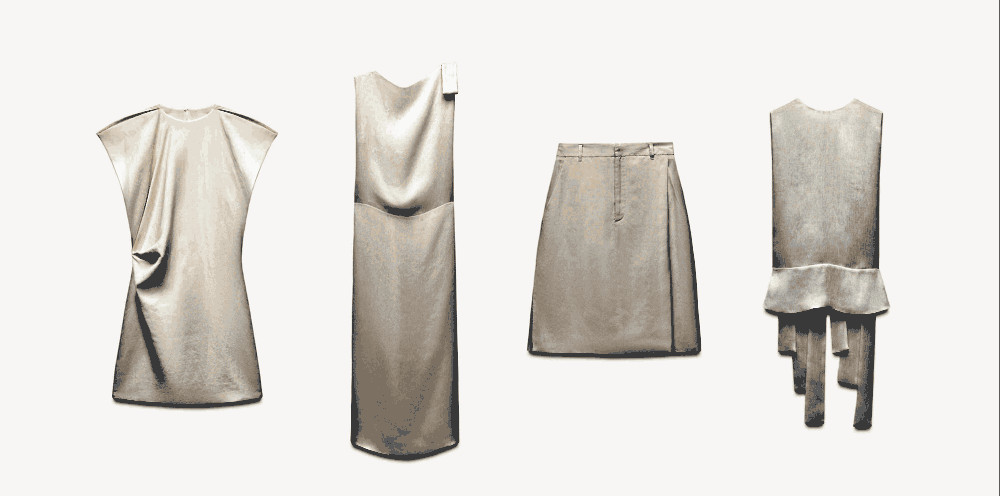14 brands working to ‘close the footwear loop’
 Image credit: Rawpixel
Image credit: Rawpixel
On Wednesday, Fashion for Good announced
Closing the Footwear
Loop — a
collaboration between 14 leading fashion and footwear brands and their existing
circularity programs to tackle the industry's complex circularity challenges.
The project partners — Fashion for Good members
adidas, Inditex,
ON,
Otto Group,
Reformation,
Target and Zalando;
along with German footwear giant DEICHMANN, Dr.
Martens,
the Footwear Innovation Foundation,
lululemon,
Puma, Tommy Hilfiger
and
Vivobarefoot
— aim to drive innovation across the footwear value chain to transform the
industry’s current, linear "take-make-dispose" model into a circular one.
The global footwear industry churns out an astonishing 23.8 billion pairs of
shoes
annually
and roughly 90 percent of
those end up in
landfills. Each shoe is composed on average of more than 60 different
components
— from fabrics and plastics to rubber and adhesives — intricately assembled to
meet performance, aesthetic and cost demands. This complexity makes recycling
and reintegrating used shoes into the supply chain a formidable task. In 2023,
Nike unveiled its first fully circular
shoe,
designed for disassembly and recyclability; but industrywide efforts to change
the wasteful ways shoes are made remain piecemeal — leaving the sector lagging
behind in circular innovation, compared to other areas of fashion.
This challenge is exacerbated by a lack of reverse logistics
infrastructure
and the absence of design principles that prioritize
circularity.
Despite these hurdles, some footwear brands are already exploring solutions including
material-science
advancements
and take-back
programs
to help pave the way for more circular footwear — efforts that complement the
collaborative work within Closing the Footwear Loop, creating a synergistic
approach to driving industry-wide change.
Closing the Footwear Loop builds on Fashion for Good’s Pioneering the Future of
Footwear
initiative and ensuing pilot with
FastFeetGrinded,
and addresses multiple key intervention points: lack of end-of-life
infrastructure, complex multi-material designs, and a need for unified
circularity approaches. The project’s time-bound deliverables include:
-
Detailed mapping of European footwear waste streams (in collaboration
with Circle Economy) — providing crucial
data on volumes, materials, rewearability and recyclability. (Report &
business case assessment due 2025)
-
A roadmap towards circular footwear design — developed with Fashion for
Good alumnus circular.fashion — outlining
principles for material selection, durability, recyclability, repairability
and responsible chemical management. (Guidelines due 2025)
-
Validation of end-of-use innovations — including trials and impact
assessments — to overcome current bottlenecks and drive industry-wide
adoption. (Recycled material outputs due 2026)
“The footwear industry stands at a critical turning point. With billions of
shoes produced annually and 90 percent ending up in landfills, Closing the
Footwear Loop represents our most ambitious effort yet to reimagine how we
design, use and dispose of shoes,” says Fashion for Good Managing Director
Katrin Ley. “By bringing
together 14 leading brands, we're not just addressing a challenge — we're
creating a blueprint for systemic change.”
Fashion giants, textile suppliers form circular ‘Fiber Club’
 Zara has featured Circ lyocell in two recent collections | Image credit:
Circ
Zara has featured Circ lyocell in two recent collections | Image credit:
Circ
Fashion for Good is also a key partner in Fiber
Club
— another recently launched pre-competitive, collaborative initiative designed
to enable seamless adoption of recycled textiles into apparel supply chains.
Launched by US-based textile-to-textile recycling innovator
Circ — also in partnership with forest conservation
non-profit Canopy — Fiber Club brings producers and
brands together to simplify supply chain integration, establish bulk pricing
frameworks, and facilitate brands' access to circular materials to make
large-scale adoption more accessible and affordable.
“Fiber Club represents the future of textile recycling and circularity,” said
Circ CEO Peter Majeranowski. “By
collaborating with brands and streaming supply chain integration, we're making
it easier than ever to adopt recycled and next-gen materials at scale.”
Introducing new fibers into existing supply chains often requires minimum
volumes and investment, and it can be costly and complex. Designed to drive
seamless integration of circular materials into commercial-scale production and
foster lasting partnerships, Fiber Club includes textile producers
Arvind, Birla
Cellulose and
Foshan Chicley; and brand partners
Bestseller, Eileen
Fisher, Everlane
and Zalando.
Fiber Club’s first project centers on Circ's staple lyocell
fiber — which has been featured in collections
from Christian
Siriano,
Mara Hoffman and
Zara
— with plans to incorporate more Circ materials in the future. With Fiber Club,
Circ aims to add Circ lyocell to the growing list of plug-and-play, circular
materials
innovations
poised to help the fashion industry end its
polluting,
wasteful
ways.
Of the three supply chain partners doing pilot development for these brands,
Birla Cellulose will produce lyocell staple fiber from Circ's pulp made from
polycotton textile waste, and Arvind and Foshan Chicley will produce textile
fabrications. The brands will collaborate with these value chain partners on
pilot quantities to scale production, then appoint a garment manufacturer to
bring products to market.
“As a long-standing partner of Fashion for Good and an investor in Circ, Zalando
is proud to join this transformative initiative,” says Pascal
Brun, VP of Sustainability
and D&I at Zalando. “We view the Fiber Club not only as vital to scale up next
generation materials for our own brands, but also to tackle the systemic
challenges that we face at an industry level, that are key to unlocking scale
and enabling a more circular future for fashion.”
Committed to long-term, industry-wide impact, the Fiber Club partners encourage
replication of the concept by other next-gen material producers to help scale
the availability of sustainable textile solutions.
Get the latest insights, trends, and innovations to help position yourself at the forefront of sustainable business leadership—delivered straight to your inbox.
Sustainable Brands Staff
Published Feb 6, 2025 8am EST / 5am PST / 1pm GMT / 2pm CET